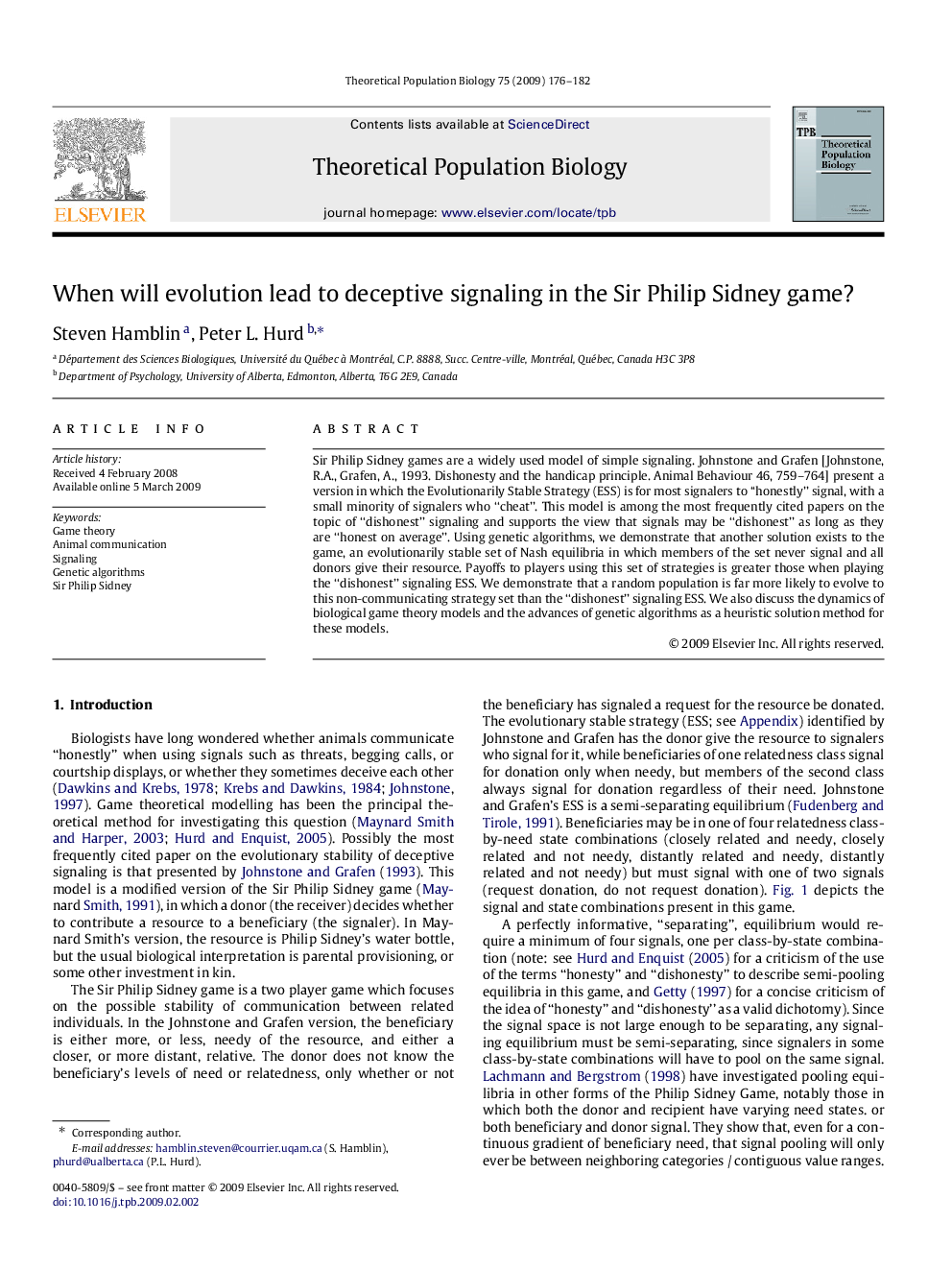| Article ID | Journal | Published Year | Pages | File Type |
|---|---|---|---|---|
| 4502945 | Theoretical Population Biology | 2009 | 7 Pages |
Sir Philip Sidney games are a widely used model of simple signaling. Johnstone and Grafen [Johnstone, R.A., Grafen, A., 1993. Dishonesty and the handicap principle. Animal Behaviour 46, 759–764] present a version in which the Evolutionarily Stable Strategy (ESS) is for most signalers to “honestly” signal, with a small minority of signalers who “cheat”. This model is among the most frequently cited papers on the topic of “dishonest” signaling and supports the view that signals may be “dishonest” as long as they are “honest on average”. Using genetic algorithms, we demonstrate that another solution exists to the game, an evolutionarily stable set of Nash equilibria in which members of the set never signal and all donors give their resource. Payoffs to players using this set of strategies is greater those when playing the “dishonest” signaling ESS. We demonstrate that a random population is far more likely to evolve to this non-communicating strategy set than the “dishonest” signaling ESS. We also discuss the dynamics of biological game theory models and the advances of genetic algorithms as a heuristic solution method for these models.
